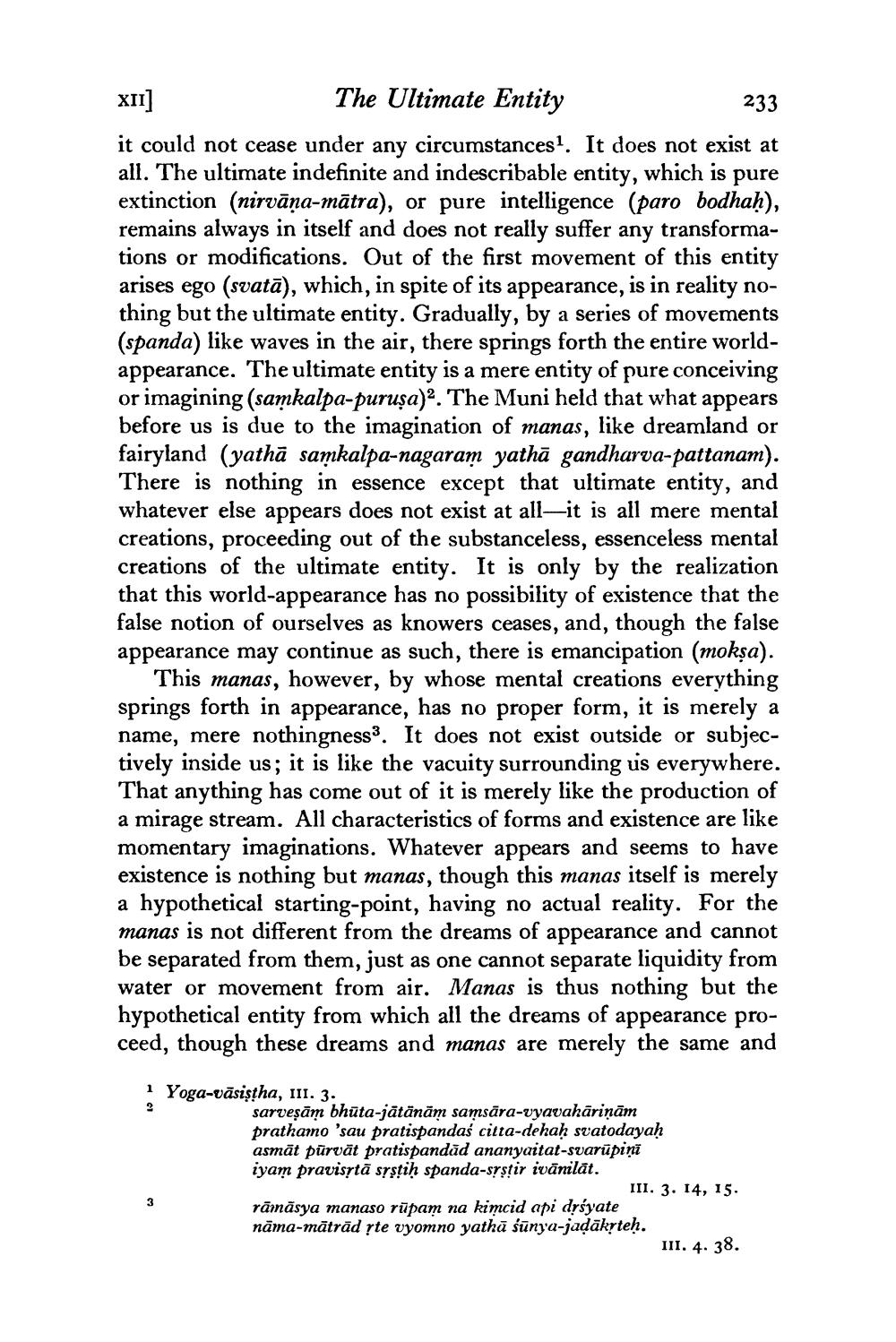________________
XII The Ultimate Entity
233 it could not cease under any circumstances. It does not exist at all. The ultimate indefinite and indescribable entity, which is pure extinction (nirvāṇa-mātra), or pure intelligence (paro bodhaḥ), remains always in itself and does not really suffer any transformations or modifications. Out of the first movement of this entity arises ego (svatā), which, in spite of its appearance, is in reality nothing but the ultimate entity. Gradually, by a series of movements (spanda) like waves in the air, there springs forth the entire worldappearance. The ultimate entity is a mere entity of pure conceiving or imagining (samkalpa-puruşa)2. The Muni held that what appears before us is due to the imagination of manas, like dreamland or fairyland (yathā samkalpa-nagaram yathā gandharva-pattanam). There is nothing in essence except that ultimate entity, and whatever else appears does not exist at all—it is all mere mental creations, proceeding out of the substanceless, essenceless mental creations of the ultimate entity. It is only by the realization that this world-appearance has no possibility of existence that the false notion of ourselves as knowers ceases, and, though the false appearance may continue as such, there is emancipation (mokşa).
This manas, however, by whose mental creations everything springs forth in appearance, has no proper form, it is merely a name, mere nothingness. It does not exist outside or subjectively inside us; it is like the vacuity surrounding us everywhere. That anything has come out of it is merely like the production of a mirage stream. All characteristics of forms and existence are like momentary imaginations. Whatever appears and seems to have existence is nothing but manas, though this manas itself is merely a hypothetical starting-point, having no actual reality. For the manas is not different from the dreams of appearance and cannot be separated from them, just as one cannot separate liquidity from water or movement from air. Manas is thus nothing but the hypothetical entity from which all the dreams of appearance proceed, though these dreams and manas are merely the same and
1 Yoga-vāsiştha, III. 3.
sarveşām bhūta-jātānām samsāra-vyavahāriņām prathamo 'sau pratispandaś citta-dehah svatodayah asmāt pūrvāt pratispandăd ananyaitat-svarüpiņi iyam pravisytā srstiḥ spanda-srstir ivānilāt.
III. 3. 14, 15. rāmāsya manaso rūpam na kimcid api drśyate näma-mātrād yte vyomno yathā šūnya-jadāksteh.
III. 4. 38.
athā sünni desyate III. 3.




